Hidden fees of financial products, part 1

In the complex world of financial products, individuals can often find themselves trying to understand confusing terms and conditions and end up discovering different hidden fees. In this three-part series, our goal is to explain different fees associated with various financial products, giving you some additional knowledge to make informed decisions.
This month we’re focusing on the hidden fees related to bank accounts.
While having a bank account is common for most people, some individuals may overlook the associated fees of their accounts. To help you be aware of what you should be looking out for, we’ve identified some common bank fees that may not be widely known.
Account fees:
Some current accounts have monthly or annual fees simply for having them open, especially if they come with added benefits such as travel insurance. If your account includes insurance or other add-ons, be aware of any fees and terms and conditions associated with these services.
Issue fee:
When you need a new card, some banks might charge you a one-time fee for providing it. Also, if you lose your debit card, some banks may charge a fee for issuing a replacement card, formally referred to as a card replacement fee.
Online banking service fees:
If a bank takes care of your account on your behalf, you might be charged a monthly or yearly fee to cover operational costs.
Cash withdrawal fees:
In the UK there are two kinds of ATMs: free ones and pay-to-use ones. Most ATMs are free, but some independently operated ones may charge a transaction fee.
Same day bank transfer fees:
Some banks will charge you for transferring large sums of money from your account to an external account.
Foreign transaction fees:
Banks may charge fees for transactions made in foreign currencies or for using your card abroad. This includes ATM withdrawals and payments made by card machines.
Receiving money from outside the UK fee:
When receiving funds, your bank or financial institution may impose a receiving fee. This fee will be subtracted from the total amount before processing and depositing a foreign payment into your bank account.
Sending money from outside the UK fee:
When sending money abroad, there are two main costs, a fixed fee, or a percentage of the amount being sent, along with an additional charge based on the exchange rate. Comparing exchange rates can be a bit tricky because some financial institutions do not publicly declare the live rate. To overcome this, you might need to contact your financial institution or log in to find out the current rate.
Authorised/arranged overdraft fees:
An overdraft allows you to borrow money through your current account, resulting in a negative balance or going “overdrawn.” Arranged overdrafts are pre-authorised credit limits agreed upon with your bank in advance. With this arrangement, you can spend money up to the agreed limit even if your current account balance is insufficient. It’s important to note that this service typically incurs a fee, with interest rates ranging from 19% to over 40%.
Unauthorised/unarranged overdraft fees:
Entering an overdraft without prior arrangement from your bank can lead to higher fees compared to an arranged overdraft. Additionally, an unarranged overdraft can negatively impact your credit file, potentially making it more difficult to secure credit in the future.
Temporary overdraft fees:
Some banks may charge fees for temporary overdrafts, even if they are within an arranged limit.
Paper statement fees:
Banks may charge fees if you opt to receive paper statements instead of electronic statements.
Additional statement fees:
Apart from paper statement fees, some banks may charge fees for additional or duplicate statements.
Returned item fees:
If a check or direct debit is returned due to insufficient funds, you may incur a fee.
Stop payment fee:
If you need to cancel a cheque from clearing, you could be charged a stop payment fee.
To help you compare bank accounts, visit the Money Helpers online tool by clicking here.
As consumers, it is our responsibility to be aware of these fees so that we make sound financial decisions. By reading the fine print, asking questions, and seeking transparent advice, individuals can take control of their financial journey and avoid the pitfalls of hidden fees.
Stay tuned for next month’s edition, where we’ll focus on the hidden fees of credit cards.
| Subscribe to our monthly “Let’s talk about money” newsletters here! |
Written by,
Benjamin Kirkman
Marketing Officer












